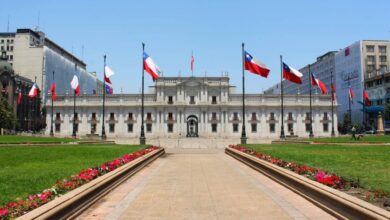Do you know what Latamleaks is?
Here we tell you everything you need to know about this platform to fight corruption in the region.

Latam Leaks is a citizen initiative to denounce corruption in Latin America. / Photo: youtube.com/Latam Leaks
LatinAmerican Post | Marcela Peñaloza
Listen to this article
Leer en español: ¿Sabe qué es Latamleaks?
Corruption scandals have become a constant in Latin America. For this reason, the Baltasar Garzón International Foundation, the Intelligent Citizenship Foundation and the Organization, Development, Education and Research Project created Latamleaks, a space for citizens to provide evidence on cases of corruption and other crimes.
Renata Ávila, executive director of Smart Citizenship, said in an interview with DW, "we need public policies and that the complaint is not frowned upon, but that it is appreciated and protected by a law that allows alerters to keep their jobs and protect their physical integrity".
Latamleaks allows anonymously and through a secure data transfer system, people that have access to information evidencing acts of corruption and human rights violations can report. The page calls alerters to anyone who can offer information that accounts for bad practices. According to Latamleaks, "we can all alert, in our own work, the competent authorities or the media, exposing acts that threaten the public interest."
The page adds that “alert people are fundamental to a democracy, their ethical principles and their civic attitude help to reveal dark secrets that would go unpunished in another way. […] Initiatives such as LatamLeaks seek to protect them from anonymity, raising awareness about the importance of their protection and calling on governments to commit to it. ”
In which countries does it work?
According to DW, Latamleaks, which was launched on February 19, brings together initiatives that have been advanced in other countries. Among these are: Peruleaks, Guatemalaleaks, Chileleaks, Mexicoleaks, and Subterranean (Nicaragua). Complaints on these portals can be made through the Tor browser, which does not register the IP address.
Peruleaks
Once you enter the page, the complainant must click on Collaborators. The page indicates that information can be sent to the media and civil organizations, so that they are responsible for investigating and publishing the information as news.
Among the organizations and media is La República, Convoca, Ojo Público, Hiperderecho, among others.
Read also: The coronavirus arrived in Latin America
Guatemalaleaks
On the page you can find information about what the portal is, alliances and frequently asked questions. On the page, the complainant may send the documents that have been collected. As with Perúleaks, you can choose the media with which you want to share the information and can be published by the portal's allies.
Chileleaks and Underground (Nicaragua)
In both portals, the process to report is the same. The complainant enters the pages and in the upper right corner finds a button that says "Report Here." By clicking there, the portals show the four-step process that must be followed to deliver the evidence.
1. Prepare the complaint: both portals recommend gathering the information in which the crime is evidenced, including videos, photos, audios, documents, etc.
2. Tor and security: to protect the anonymity of the complainant, Chileleaks and Subterranean request the download of Tor browser. This browser does not allow you to track the IP address from where the documents were loaded. Additionally, it is recommended not to use the computer used in the workplace; be clear who else has access to that information so you're not to be the only suspect; do not post on the social networks about the complaint.
3. Complaint: once Tor has been downloaded, you must fill out a form and attach the evidence.
4. Follow-up: the page will generate a code with which the person can follow up on the case.
Mexicoleaks
Like the Peruvian and Guatemalan version, in Méxicoleaks, the complainant may send the documents for the allies to publish. These organizations will validate that the documents are of public interest and disseminate them so that they have “maximum impact”. The page ensures that the portal and its allies are committed to safeguarding the identity of the complainants.
Read also: The first consequences of the statements of Aída Merlano
Why creating Latamleaks?
Avila, who has worked as a lawyer defending Julian Assange, founder of Wikileaks, points out that "the means to denounce in Latin America are quite fragile. There is no citizen culture of denunciation, as in other countries."
The director also says that "this is only the beginning, and our dream is that we can reach a regional consensus and that there is a model law that allows us to have a Latin American system of protection of alerters. For example, if someone files a complaint in Uruguay and is in danger because of this, we want to have a collaborative system that allows to relocate this person in Costa Rica, to say something, and that can make his life, or generate a fund that allows us to support the alerters and their families ”.





